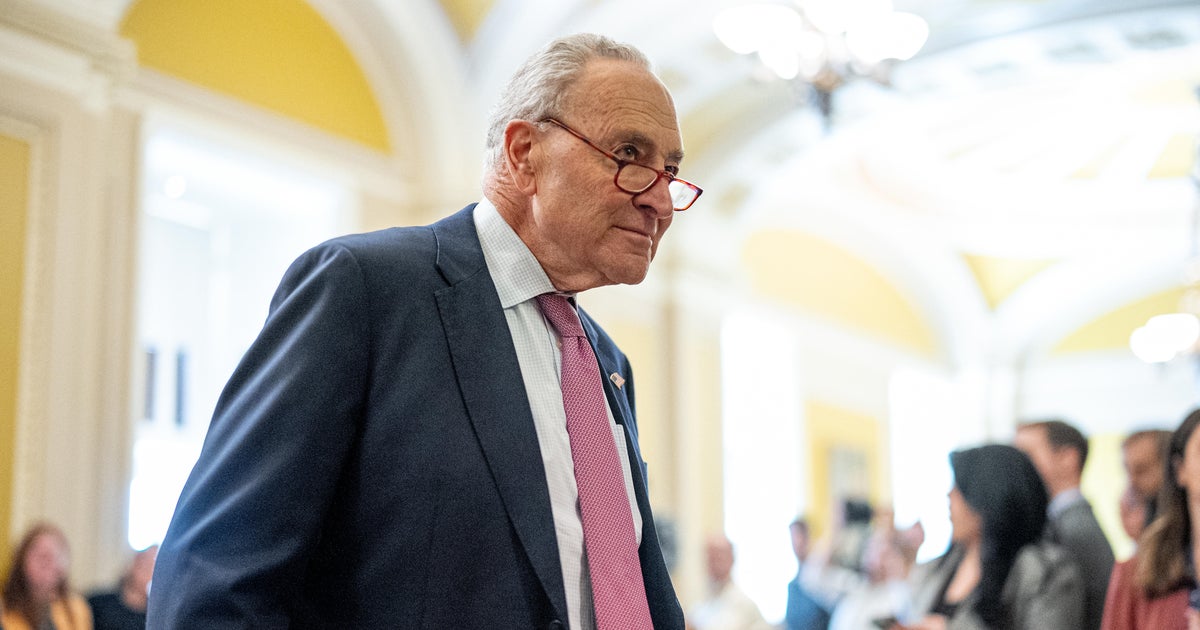Internal investigation of domestic violent extremism reveals four sympathizers inside DHS
A nearly 11-month probe by the Department of Homeland Security into domestic violent extremism (DVE) in its ranks uncovered four incidents of active participation or support for violent extremist activity among employees at the agency since 2019.
But the report also revealed that the government arm responsible for tracking terrorist threats to the homeland "has not adopted an authoritative definition of 'domestic violent extremist' that can be incorporated" into DHS policies and guidance."
The probe, led by DHS' Domestic Violent Extremism Internal Review Working Group, assessed that the Department has "significant gaps" that impede its ability to "prevent, detect and respond" to potential DVE threats within DHS. These gaps – including a lack of workforce training to identify and report such activity – likely affected DHS' accounting, according to the assessment released Friday by the working group.
"I was troubled by the findings, because the findings disclosed significant gaps in this department's ability to detect and respond to domestic violent extremism," Homeland Security Secretary Alejandro Mayorkas told CBS News in an exclusive interview Friday.
"At the same time, I greatly appreciated the value of the investigative process for bringing those gaps and that troubling news to the surface, so that we know precisely what we need to do to model good government, to ensure the honor and integrity of this department and to protect those who do not feel safe in the workplace," he added.
Four incidents of "active participation or support for domestic extremist activity"
The working group's initial search identified 35 allegations of potentially violent extremist activity between October 2018 and July 2021 in the department's ranks, which boasts more than 250,000 personnel.
Investigators ultimately determined only four incidents involved "active participation or support for violent extremist activity," while the other 31 allegations were deemed unsubstantiated or miscategorized.
Both the report and Mayorkas did not indicate whether any DHS personnel visited the U.S. Capitol on January 6th or belonged to well-known extremist groups such as the Proud Boys, the Oathkeepers or Three Percenters.
But among the four identified in the audit is former Coast Guard lieutenant, Christopher Hasson, who was accused of compiling a hit list of Democratic politicians and media personalities in February 2019. The self-described "long-time White Nationalist" was later sentenced to over 13 years in prison after agents uncovered several firearms, including a silencer, and hundreds of rounds of ammunition at his home.
The revelation of such profound extremism inside the U.S. Coast Guard, which sits under the purview of DHS, spurred a September 2019 strategy bulletin issued by then-acting DHS Secretary Kevin McAleenan.
In the years leading up to the Capitol insurrection, DHS faced mounting pressure to recognize and address the looming threat of domestic extremism. But Friday's probe also unearthed a lack of funding needed to support the expansion of DHS' Insider Threat program — its current tool for "managing insider threat matters" — and related training programs.
Mayorkas first announced the probe last April, more than two months after Defense Secretary Lloyd Austin issued a service-wide, 60-day "stand down" within the U.S. military. At least 82 current or former military members have been arrested in relation to the attack on the Capitol on January 6. About 100 current service members participated in prohibited extremist activity in 2021, Pentagon officials said, up from the "low-double digits" of previous years.
Rooting out extremist threats within DHS
When the working group dove into DHS' data, they found the department and its components do not specifically track domestic violent extremism allegations, opting to instead file complaints under other sub-categories such as "workplace violence." Investigations into allegations of violent extremist activity often straddled multiple departments, making it unclear who bore responsibility for following up.
Friday's report failed to identify specific extremist groups by name, but sorted allegations into the following categories:
- racially or ethnically motivated domestic violent extremism
- animal rights/environmental-related domestic violent extremism
- abortion-related domestic violent extremism
- anti-government/anti-authority domestic violent extremism\
- all other domestic terrorism-related threats
In total, the group issued 15 recommendations intended to protect DHS employees and establish a standard for rooting out extremist threats, beginning with the implementation of a policy to detect, prevent and respond to violent extremist activity inside DHS.
Investigators recommended establishing a single reporting center for those seeking to file a DVE-related personnel complaint.
"A single definition" of domestic violent extremism
Probed on whether all employees of DHS — which include federal law enforcement officers at U.S. Customs and Border Patrol, U.S. Immigration and Customs Enforcement (ICE) and the Federal Protective Services — should be treated the same under its new policy, Mayorkas said DHS' future evaluations "very well could" consider an employee's role.
"That requires a legal analysis," Mayorkas said. "That is why we need to establish baseline policies and guidance."
Unlike the Department of Defense, which operates off a chain of command culture, the components of DHS' federated bureaucracy routinely operate with autonomy. An effort to create one definition of domestic violent extremism is already underway, along with updated employee training modules and guides for leaders to follow when discussing a violent extremist activity.
"There will be a single definition that will guide this department," Mayorkas said.
He acknowledged the challenges of policing extremist activity while safeguarding the First Amendment rights of employees, but stressed "all speech is not necessarily protected."
"If the views that an individual expresses create a question with respect to the integrity and objectivity with which they fulfill their responsibilities, then that can be an issue," Mayorkas said.
Last year, U.S. Customs and Border Protection found 60 cases of misconduct following a sweeping investigation into shared explicit and violent messages on secret Facebook pages, though only two were ultimately fired.
Moving forward, recommendations in Friday's report will not cover the 48,000 members of the Coast Guard, who sit under the purview of DHS but will be separately considered by the Pentagon's review of domestic violent extremism.
The working group has tasked DHS with establishing rules and guidelines for its approximately 170,000 contractors, pointing out that "special consideration must be given to vetting this sizable population, which has direct authorized access to DHS assets" including everything from immigration detention facilities to biometrics equipment.
DHS' Office of Security led the working group and continues to serve as its headquarters, though Mayorkas stressed that responsibility for implementing future protocol will fall to components "at every level of the supervisorial chain and ultimately, with me."
Ellee Watson and Rob Legare contributed to this report.



